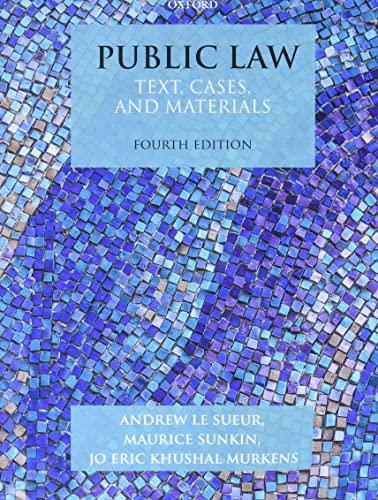Question
a.One of QPI's customers, SpaceZ, was secretly building a space-based gravitational wave detector to compete with NASA's Laser Interferometer Space Antenna (LISA).SpaceZ approached several companies
a.One of QPI's customers, SpaceZ, was secretly building a space-based gravitational wave detector to compete with NASA's Laser Interferometer Space Antenna (LISA).SpaceZ approached several companies and governments and, after they signed non-disclosure agreements about SpaceZ's secret project, SpaceZ offered to sell non-exclusive rights to the data from its soon-to-be-launched gravity-wave detector at a price of $30 million per customer.Four customers pre-paid for the rights to SpaceZ's gravity-wave data.Several other customers were interested, but were waiting to see whether SpaceZ's gravity-wave detector would begin operating before NASA's LISA.SpaceZ placed a special order from QPI for sixteen mirrors made of pure fused silica glass, which it planned to use in its gravity-wave detector.SpaceZ filled out QPI's form contract for special orders, which contains numerous boilerplate clauses.One of the clauses states: "All of QPI's lenses are sold 'as is.'" SpaceZ attached the precise specifications for the mirrors as an addendum to QPI's form contract, describing their physical properties.In response, QPI sent an invoice to SpaceZ for $35,700, which SpaceZ promptly paid.After receiving payment, SpaceZ sent QPI a receipt stating that the mirrors would be delivered within 14 days.When QPI delivered the mirrors 30 days later, SpaceZ discovered that they did not meet SpaceZ's specifications and could not be used in its gravity-wave detector.The next day, NASA announced that it was planning to launch its LISA in just two months.SpaceZ sent an e-mail to Nouv at QPI, demanding that QPI send replacement mirrors as soon as possible, explaining SpaceZ's intended use for the mirrors, and begging Nouv to keep SpaceZ's project a secret.Nouv replied to the e-mail, stating: "All of our lenses are sold 'as is.'We have never used our mirrors for gravity-wave detection, and make no warranties about their suitability for that purpose.NASA publicly stated that it purchased similar mirrors from our competitor, Dependable Optics Associates, Inc.QPI lacks the technical expertise to compete with DOA in this new, emerging market for gravity-wave detectors.We will not be sending any replacement mirrors."SpaceZ promptly sued QPI for breach of contract.Six months later, while SpaceZ and QPI were busy filing discovery motions, NASA successfully launched LISA, making any and all of SpaceZ's future data on gravity waves worthless. Issue: Assuming that SpaceZ prevails in the lawsuit, what damages will QPI be required to pay to SpaceZ?
Step by Step Solution
There are 3 Steps involved in it
Step: 1

Get Instant Access to Expert-Tailored Solutions
See step-by-step solutions with expert insights and AI powered tools for academic success
Step: 2

Step: 3

Ace Your Homework with AI
Get the answers you need in no time with our AI-driven, step-by-step assistance
Get Started


